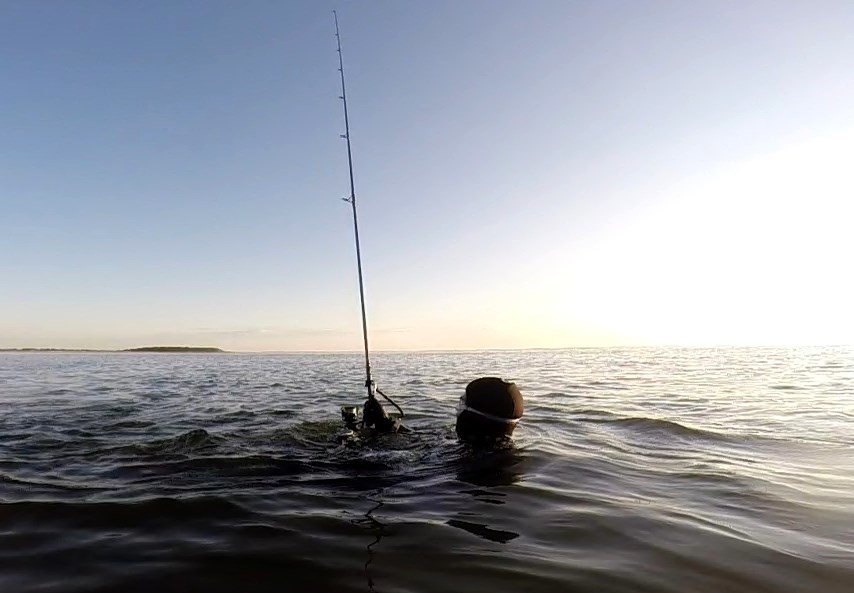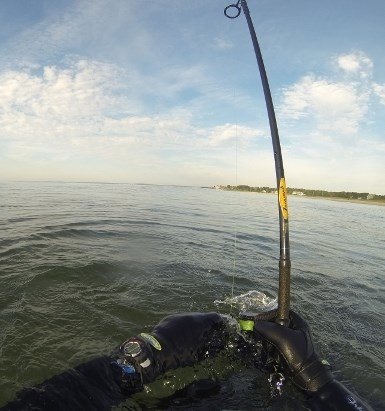Angler input on nation’s fishing law requested
Last month United States Congressmen Jared Huffman (D-CA), Chair of the Water, Oceans, and Wildlife Subcommittee, and Ed Case (D-HI), subcommittee member introduced a discussion draft of a bill to reauthorize the Magnuson-Stevens Act (MSA), the primary fishing law of this nation. The discussion draft addresses climate change impacts on fishing as well as other important fisheries conservation issues. Angler and fishing industry input on the discussion draft has been requested by Jan. 31. The plan is to receive input on the discussion draft and then introduce a revised bill.
Overall the bill is very good for fish, fishermen and habitat. It is the most comprehensive bill of its type I have seen in recent years and is badly needed to make this nation’s fishery climate ready. This weekend I took the time to review the bill and pull out some key issues that I believe greatly impact anglers in New England.
The bill has a robust section on climate change and possible solutions to address stock movement up and down the coast. Specie allocation and jurisdiction challenges on what region should manage a stock that has shifted to another area are addressed in the bill. These guidelines will be needed more and more as warm water fish move north into our area in greater abundance such as black sea bass, scup and summer flounder and cold water fish like winter flounder and American lobster move further north to deeper, colder water.
The bill proposes that the National Marine Fisheries Service (NOAA) should step in to settle disputes if Regional Councils cannot decide who is responsible for a specie’s Fisheries Management Plan (FMP) when stock movement occurs. A related issue of seats on Councils where states have no representation is address in the bill too.
Traditionally Rhode Island’s Congressional delegation has advocated for Rhode Island gaining a seat on the Mid-Atlantic Council. Much of the fish we land in Rhode Island is managed by the Mid-Atlantic Council. This includes summer flounder and squid. Our state lands more of these fish than most other states. The discussion draft tries to address this issue by having the New England, Mid-Atlantic and South Atlantic Councils having seats on each other’s council. The idea has merit but needs work to put it more in line where species have moved.
The discussion draft focuses on access as a key component of those receiving Working Waterfront Grants and the aim of using electronic recording and citizen science to complement fisheries data is a good lone. With proper planning additional surveys can provide more robust data to manage stocks and encouraging Electronic Technology (ET) use particularly when it is used to assess climate change impacts is a good idea too.
Presently the Rhode Island Saltwater Anglers Association in partnership with the Rhode Island Department of Environmental Management, Harbor Light Software and the National Fish & Wildlife Foundation are engaged in a recreational angler electronic recording pilot to record catch and effort on smartphones and tablets. The pilot aims to compliment recreation catch and effort data from NOAA (MRIP) and explore what motivates anglers to record catch and effort.
And lastly, the discussion draft initiative of mandating the Bureau of Ocean Energy Management (BOEM) and NOAA to engage in a cooperative agreement to fund additional stock assessments associated with offshore wind farm development is a good recommendation. Enhanced cooperation between BOEM and NOAA is needed, and more stock assessments (and funding) can only help fish mangers.
Thank you Congressman Human and Case for getting this MSA discussion draft out for comment. For a copy of the bill, a bill summary, and how to comment visit https://huffman.house.gov/msa.
Give Right Whales Room
North Atlantic right whales are on the move along the Atlantic coast of the U.S. NOAA is cautioning boaters and fishermen to give these endangered whales plenty of room. NOAA is also asking all fishermen to be vigilant when maneuvering to avoid accidental collisions with whales and remove unused gear from the ocean to help avoid entanglements. Commercial fishermen should use vertical lines with required markings, weak links, and breaking strengths.
Where’s the bite?
Freshwater fishing in ponds stocked with trout has been very good in Rhode Island and Massachusetts. Ted Oven of Northeast Trading Company, North Attleboro, said, “With no ice on local ponds the fishing activity has been slow. We sold just a couple of boxes of worms all week.” For 2021 licensing information and a list of trout stocked ponds in Rhode Island visit http://www.dem.ri.gov/programs/fish-wildlife/freshwater-fisheries; and in Massachusetts visit www.mass.gov/freshwater-fishing-information.
Cod fishing. Capt. Frank Blount of the Frances Fleet said, “Fishing was good this week. High hook this week was five cod with many anglers having three apiece. Bait was the ticket this week but those who jigged were rewarded too.” Party boats fishing for cod this winter include the Frances Fleet at www.francesfleet.com, the Seven B’s at www.sevenbs.com, and the Island Current at www.islandcurrent.com.
Dave Monti holds a captain’s master license and a charter fishing license. He is a RISAA board member, a member of the RI Party & Charter Boat Association, the American Saltwater Guides Association and the RI Marine Fisheries Council. Forward fishing news and photos to Capt. Dave at dmontifish@verizon.net or visit www.noflukefishing.com.









